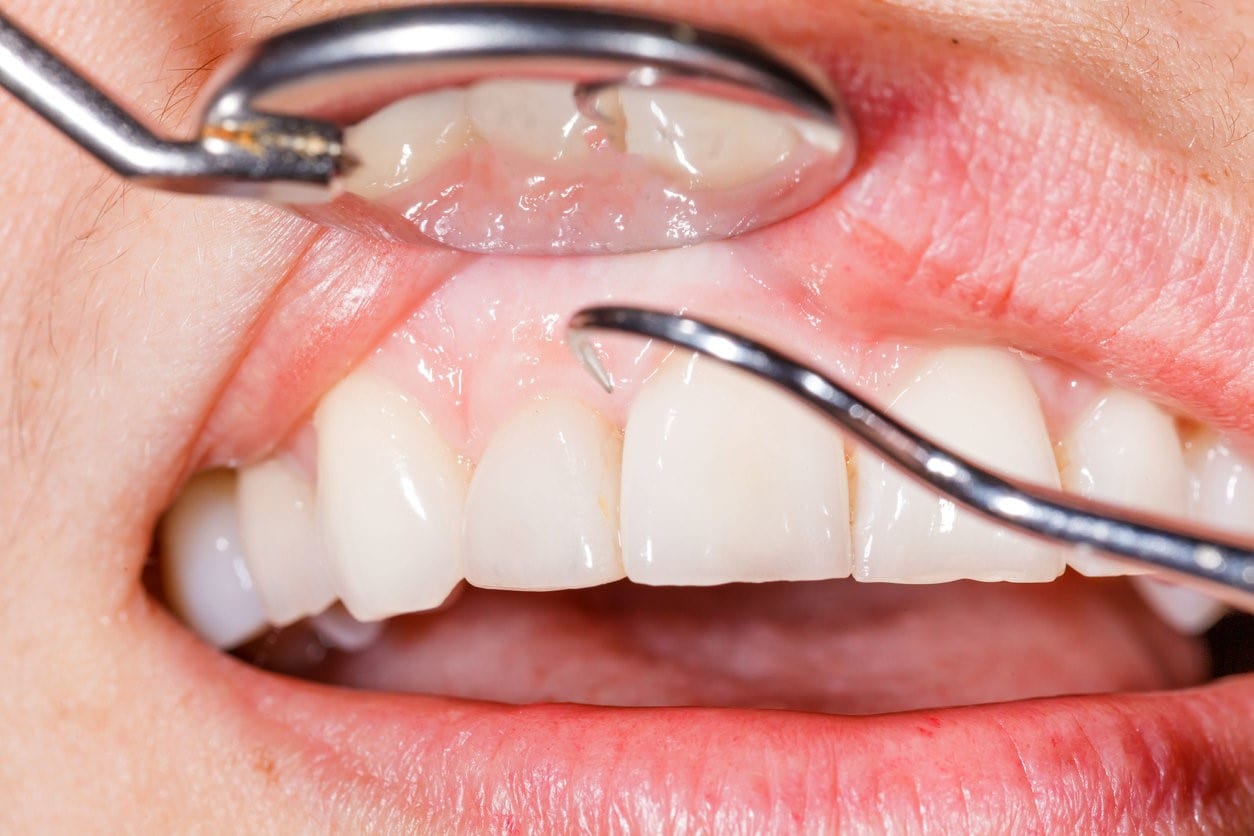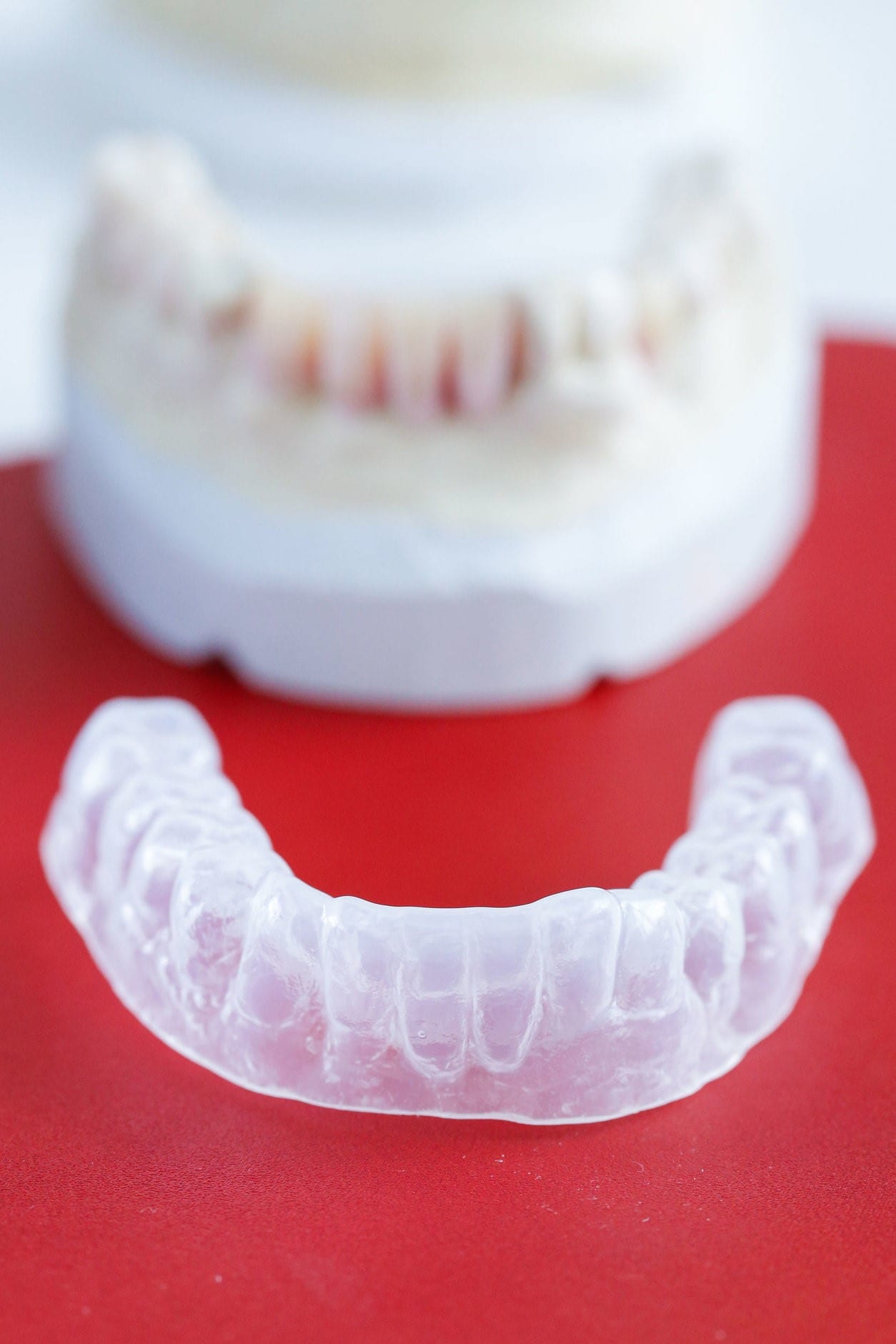
Receding gums are just as uncomfortable as they sound. It means that your gums are starting to pull away from your teeth, leaving the roots of your teeth exposed.
Our gums protect our teeth from the food and bacteria that enters our mouth and threatens to wear down our teeth. When more of our teeth are exposed, there is a higher risk of getting cavities or suffering other kinds of tooth damage that can require root canals or similar procedures.
If your gums recede too much, you may eventually require a surgery called a gum graft. During a gum graft, surgeons remove part of the gum from one part of your mouth and place it where the gums have receded the most. This procedure is only recommended for patients with more serious cases, and is not required for everyone who is experiencing recession.
No one wants to get to the point where they need surgery for receding gums. So how can you prevent gum recession from happening? First you have to understand why gums recede in the first place.
The Reasons That You May Suffer from Receding Gums
Unfortunately, there is nothing you can do to halt a receding gumline altogether. Gum recession is inevitable with age. Just as our bones wear down when we get older, so do our gums. Our genetics play a big factor here. If your parents have dealt with gum recession in the past, there is a big chance that your gums will recede as well.
However, there are habits, behaviors, and medical issues that speed up gum recession, including:
Gum Disease. One of the contributors to faster gum recession is periodontitis, or gum disease. Gum disease occurs when plaque (which is formed by bacteria) hardens to tartar and is left to grow on and around the teeth. The tartar can escalate to the point where it causes inflammation in the gums and causes the gums to bleed during everyday brushing.
This form of gum disease is called gingivitis, and can be fixed with regular cleanings. When gingivitis gets out of control, it can turn into periodontitis, which can cause damage to the bones, gums, and tissue within the mouth.
Brushing Too Hard. We brush our teeth to prevent tooth decay and gum disease, but your brushing may actually be causing more harm than you think. If you brush too aggressively, you can hurt your gums and speed up the recession process.
How do you stop this? Purchase toothbrushes that are considered “soft.” If you are brushing to the point where you feel pain in your mouth, back off. If you are concerned with your brushing habits, talk to your dentist and show them how you brush.
On the other hand, poor oral health can contribute to gum recession as well. Make sure you are brushing and flossing after meals – just don’t brush too hard!

Grinding Your Teeth. Bruxism, or teeth grinding, can also speed up gum recession. Bruxism can be caused by many different factors, including stress or misaligned teeth. If you wake up with headaches every morning, or your partner has noticed you grinding your teeth in your sleep, talk to your dentist about wearing a night guard.
How Can You Prevent Receding Gums?
As mentioned above, you can’t prevent gum recession that occurs due to natural wear-and-tear – especially if you are more genetically predisposed to receding gums. You can, however, make moves to prevent causes of gum recession like gum disease and bruxism. Consider taking the following steps to slow your receding gumline down:
Use Mouthwash. In addition to consistently brushing and flossing, using mouthwash is a great way to keep your gums from receding too quickly. Mouthwash can go further in killing bacteria, so talk to your dentist about the best types of mouthwash on the market.

Drink More Water (and less of everything else). Acidic drinks like coffee, wine, or orange juice can speed up gum recession. Cutting them entirely out of your diet is the best way to protect your gums, but for most people that’s just not realistic.
However, the effects of acidic drinks are mitigated when paired with a nice glass of water. So challenge yourself to drink one glass of water for every cup of coffee or glass of wine that you drink.
Visit the Dentist. While you may not be able to gauge your risk for gum disease and recession, your dentist sure can. Biannual dental visits allow you and your dentist to take a close look at your oral health and spot any signs of gum disease or recession. Dental visits also allow you to get a thorough cleaning and eliminate any plaque or tartar that has been building up since your last visit.
For more information the causes of gum recession, contact a South Florida dentist for a free consultation.






